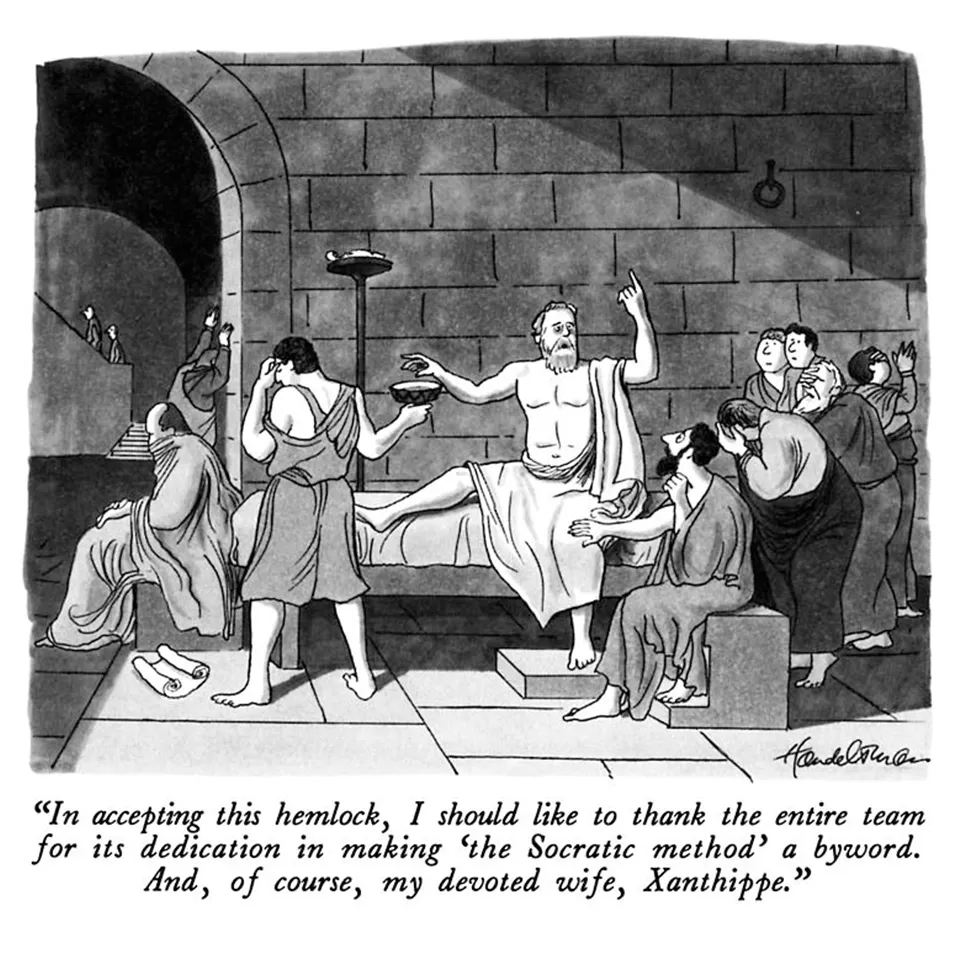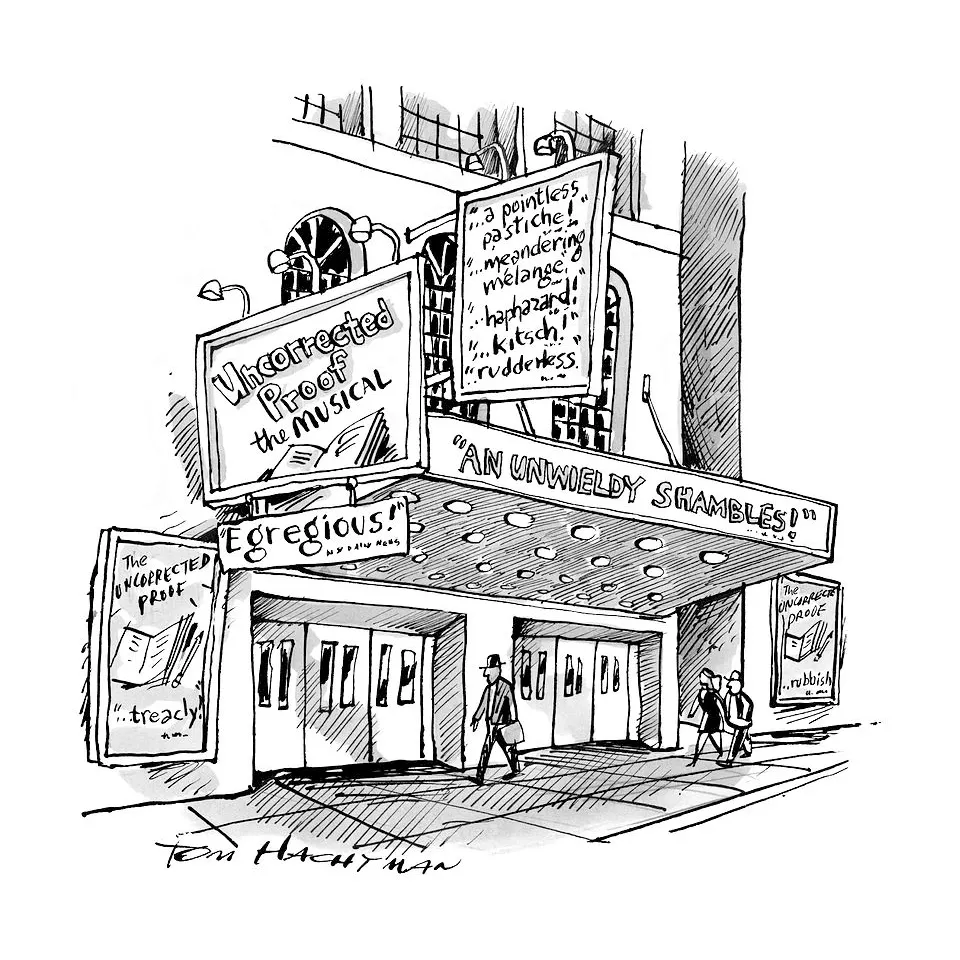Philosophical Articles
Philosophy teaches us and unsettles us by confronting us with what we already know. There’s an irony. The difficulty of this course consists in the fact that it teaches what you already know. It works by taking what we know from familiar, unquestioned settings, and making it strange. Philosophy estranges us from the familiar — not by supplying new information, but by inviting and provoking a new way of seeing, but — and here’s the risk — once the familiar turns strange, it’s never quite the same again. Self-knowledge is like lost innocence, however unsettling you find it, it can never be unthought or unknown.


Film and Philosophy
There’s a scene in the 1991 comedy Grand Canyon , in which filmmaker Steve Martin asks an associate: “Mac, did you ever see the movie called Sullivan’s Travels ?” “No.” the asscociate answers. Martin: “That’s part of your problem, you know. You haven’t seen enough movies. All of life’s riddles are answered in the movies.”
And that’s what this site is all about; how the movies have helped us to understand and re-act to the great questions of our time: What is life all about? Who are we? Where do we come from? Why are we here? What is love? What is marriage? What makes us angry? What is death? And, hey … what’s so funny?
Why is it that hundreds of people can sit in the same theater, see the same movie, walk out at the same time, yet feel completely different about the same experience? Why does the lady sitting on our right cry during a scene, while the man on our left thinks about business? Why is the child in front of us sitting on the edge of his seat, eyes wide, mouth open, filled with anticipatory excitement, while the lady sitting behind us concentrates on a candy bar wrapper she can’t quite open? Why do some people feel they got their moneys worth, and others consider it a waste of time?
“That’s part of your problem, you know. You haven’t seen enough movies. All of life’s riddles are answered in the movies.”
Life’s riddles
The truth is, whether you’re sitting by yourself in an old movie house, with family and friends in an ornate theatrical palace, or among strangers in a simple multiplex, every movie you have ever seen was meant for only one person …you! But, while the movies may provide a few hours distraction from our fears and anxieties, their ultimate value manifests when we reen-act the appropriate, instilled, cinematic “behavioral truths” into our reel life scenes and dramas. It’s not surprising that most of us fondly recall at least one scene, or even a single line, from some movie, that inevitably and indelibly altered our lives. That’s because it was a personal message for you! And you got it.
For some, it’s Scarlett O’Hara’s line: “Tomorrow is another day,” that encourages us not to buckle under to today’s trials and tribulations. For others, it’s Mae West’s “come-hither” invitation to Cary Grant to: “Come up and see me sometime” that gives you permission to ask for what you really want. And how can you measure the value of a good line to relieve you of a burden carried too long?
Remember “Tivoing” your mind when you heard an image on the screen say something that resonated within you? Perhaps it was a new thought that you’ve never considered before … a new way of saying what you’ve always thought, or mayby it changed your mind. Somebody is verbally expressing something that is so deep within your heart, you’re instinctively stunned by its impact on you. Reluctant to miss any of the story, you quickly categorize and file it away, knowing that, somehow, it has transformed you. You hope to remember the line long enough to tell others, sure that it will affect them as much. That’s what Reel Life is all about.

Awaken the restlessness of reason
“Immanuel Kant”, described very well the problem with Skepticism when he wrote, “Skepticism is a resting place for human reason, where it can reflect upon its dogmatic wanderings. But it is no dwelling place for permanent settlement.” “Simply to acquiesce in Skepticism”. Kant wrote, “Can never suffice to overcome the restlessness of reason.”
Philosophy is a distancing, even debilitating activity. And you see this going back to Socrates. There’s a dialogue, the “Gorgias”, in which one of Socrates’ friends, “Calicles”, tries to talk him out of philosophizing. Calicles tells Socrates, “Philosophy is a pretty toy if one indulges in it with moderation at the right time of life. But if one pursues it further, than one should, it is absolute ruin.” “Take my advice”, Calicles says, “Abandon argument. Learn the accomplishments of active life. Take for your models not those people who spend their time on these petty quibbles, but those who have a good livelihood and reputation and many other blessings.” So Calicles is really saying to Socrates, “Quit philosophizing. Get real. Go to business school.” And Calicles did have a point. He had a point because philosophy distances us from conventions, established assumptions, and from subtle beliefs. Those are the risks — personal and political. And in the face of these risks, there is a characteristic evasion. The name of the evasion is “Skepticism”. if “Aristotle”, “Locke”, “Kant” and “Mill” haven’t solved these questions after all of these years, who are we to think, that we can resolve them? And so maybe it’s just a matter of each person having his or her own principles, and there’s nothing more to be said about it. No way of reasoning. That’s the evasion — The evasion of Skepticism — to which I would offer the following reply:
“It’s true, these questions have been debated for a very long time. But the very fact that they have recurred and persisted may suggest that, though they’re impossible in one sense, they’re unavoidable in another. And the reason they’re unavoidable, the reason they’re inescapable, is that we live some answer to these questions every day. So Skepticism — just throwing up your hands and giving up on moral reflection — is no solution.” “Immanuel Kant”, described very well the problem with Skepticism when he wrote, “Skepticism is a resting place for human reason, where it can reflect upon its dogmatic wanderings. But it is no dwelling place for permanent settlement.” “Simply to acquiesce in Skepticism”. Kant wrote, “Can never suffice to overcome the restlessness of reason.”
I’ve tried to suggest, through these stories and these Arguments, some sense of the risks and temptations, of the perils and the possibilities. I would simply conclude by saying — that the aim of this course, is to awaken the restlessness of reason and to see where it might lead. Thank you very much.

